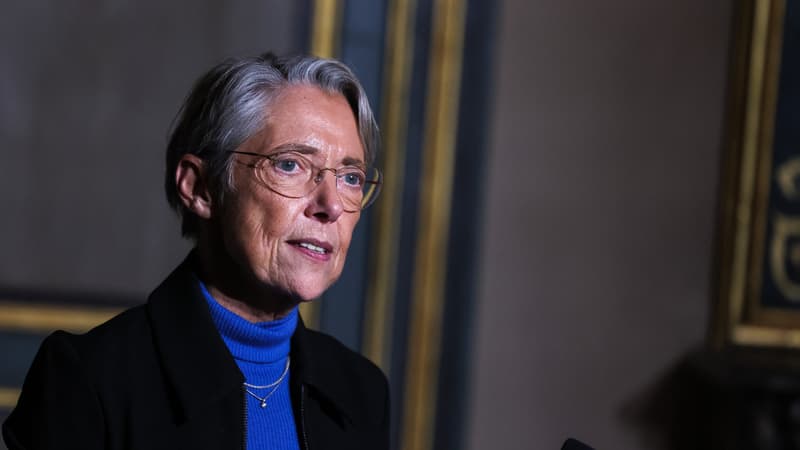The next few weeks promise to be extremely tense for the government. As the Executive prepares to unveil its explosive pension reform on Tuesday, which should contain the probable postponement of the retirement age to 64, the unions have already expressed their discontent.
During a press conference in the presence of several ministers, Elisabeth Borne could, according to several of her interlocutors, propose a postponement of the legal age of departure to 64 years, instead of the current 62, after having considered 65 years.
This postponement would be associated with an acceleration of the extension of the contribution period, which would increase to 43 years before the horizon of 2035 marked by the Touraine reform. The Government would also be willing to raise, during the parliamentary debate, the minimum pension to 1,200 euros for all retirees and not only for newcomers.
“The Mother of Battles”
A hypothesis that in no way satisfies the unions, which are already preparing for mobilization.
“If Emmanuel Macron wants to make her the mother of reforms (…) for us she will be the mother of battles,” warns the head of FO Frédéric Souillot, who is opposed to this reform like all union organizations and the majority of objections
The stumbling block remains the measurement of age. More than two thirds of the French (68%) are against deferral at age 64, according to a survey by Ifop-Fiducial.
“There will be no deal with the CFDT” in the event of a postponement of the age of majority and “we will do everything possible to make the government back off,” warns its leader Laurent Berger.
“Attention, Madam Prime Minister, today there is a lot of social tension, many social difficulties, anguish, conflict, many negative feelings in the population,” added the latter.
Several political figures have also spoken out against the text, including the rebel MEP Manon Aubry who points to a reform that “is neither useful nor necessary”.
“We are pushing the retirement age faster than life expectancy is increasing and that is why January should be the month of great general mobilization,” he says.
What dispute?
With BFMTV, Emmanuel Rivière, director of political studies at Kantar, confirms that the government could find itself in a difficult position before the announcement of this disputed reform.
“There are many reasons, complaints, dissatisfaction, concerns, observations on the state of the country, its national education, the hospital, obviously there is a very painful feeling at the end of each month. An inflation against which the French have to return to the hard every it’s harder for them to fight,” he explains.
What form could the challenge take? “The unions are united and determined, it will surely be hot. There will be blockades and strikes, we will not escape”, estimates, still on our antenna, the editorial writer for BFMTV Christophe Barbier.
Only the recent interview with the new head of the Republicans, Éric Ciotti, who affirms that he would be willing to “vote for a fair reform”, changes the situation. With this reinforcement, the executive, which does not have an absolute majority in the National Assembly, could thus obtain legitimacy at the polls.
“If there is a majority, it will be difficult for the unions to question the legitimacy. France would have to be blocked, but with inflation, are the French willing to lose days of salary? I’m not sure…”, concludes Christophe Barbier.
Source: BFM TV


